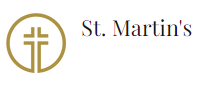Should I Go to Confession?
From the earliest days of Christianity, the Church believed that the Sacrament of Baptism cleansed from sin. But there was disagreement about the fate of a person if they sinned after baptism. Because of the fear that those sins could not be forgiven, many people put off their baptisms until the time of their death, so that they could die absolved of all sins. In time, by the guidance of the Holy Spirit, the Church understood that bishops and priests were successors of the authority given to the Apostles by Jesus. Part of this authority was the power to absolve sins. (“Receive the Holy Spirit. Whose sins you forgive, they are forgiven; and whose sins you shall retain, they are retained” John 20:22-23). And so the church devised the Sacrament of Reconciliation (also known as Confession) as a means of helping the baptized repent and return to God after having sinned.
The Episcopal Church, which is rooted in the ancient Christian faith that has been observed in the British Isles since the 2nd century, offers this sacrament to those who desire it. It is a healing sacrament meant to assure a sinner of God’s love, grace, and forgiveness. But Anglicans do not view this sacrament as compulsory. It is good to remember the following Anglican dictum here: “All may, some should, none must.” The Scriptures teach us that anyone can turn to God through the mediation of Jesus Christ, with a contrite heart, confess their sins with the intention of living a holy life, and receive God’s forgiveness.
But sometimes, one should consider making a sacramental confession in order to receive the assurance of pardon and/or spiritual counsel from the priest. This may be helpful for a person who can not overcome a habitual sin or a person who has committed a grave sin (sometimes called a mortal sin). It may also be helpful for a person who is struggling to forgive themselves, as the priest can offer them counsel to help them love themselves in order to receive God’s pardoning mercy. One might also consider making a confession as part of one’s preparation for another sacrament, such as First Communion, Confirmation, Marriage or Ordination, or before starting a new chapter in life. This way, one can begin with a clean slate and a fresh start, newly empowered by God’s grace.
At St. Martin’s confessions are heard by appointment. Simply call or email Father Rob and set up a time. It’s important to remember that your confession is confidential and protected. It can never be revealed to another person for any reason. Please also remember that you are in a safe and loving environment. I am here to support you in your conversion. I will never judge or condemn you.
